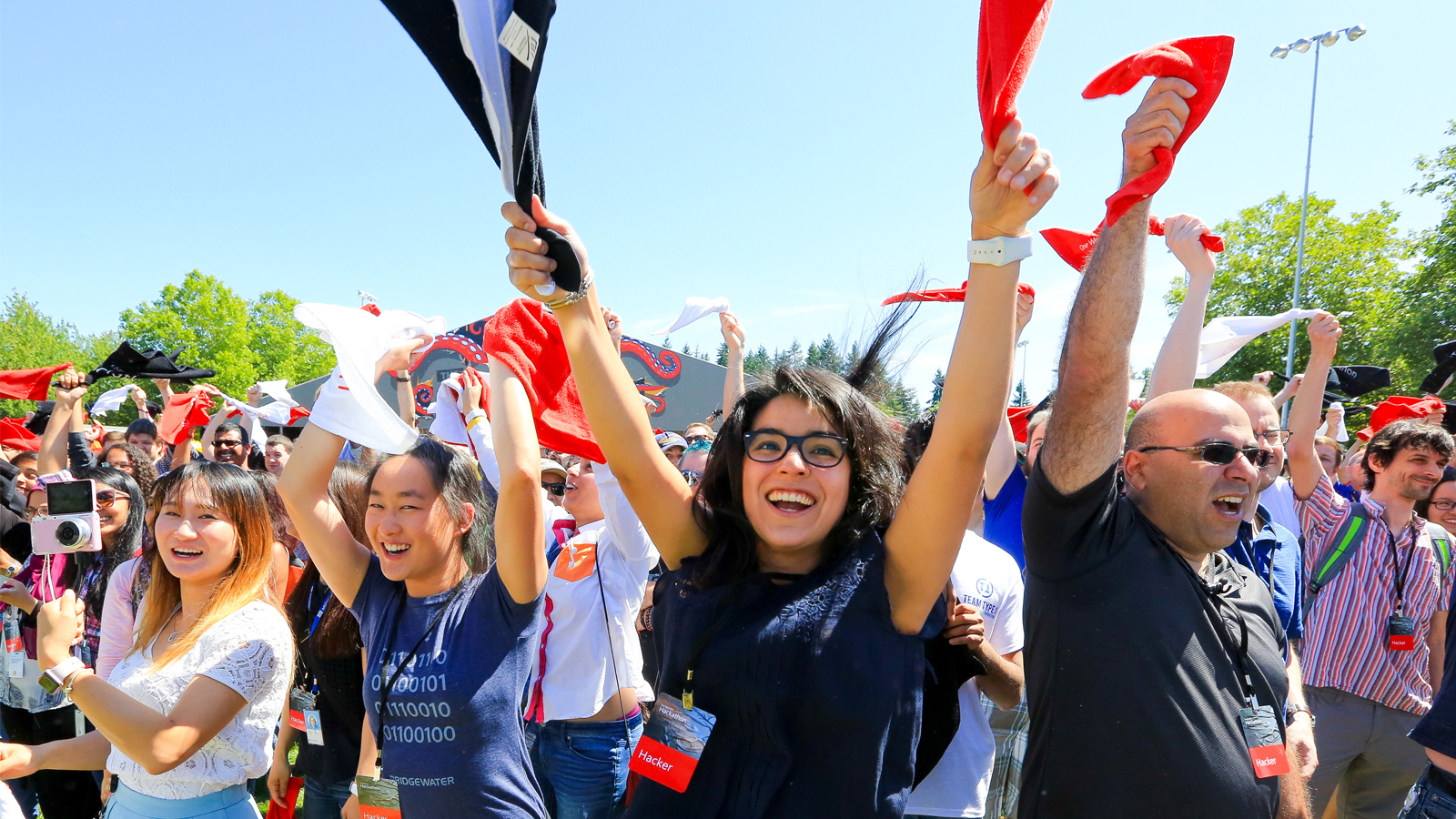
At the largest private hackathon on the planet, Microsoft employees fire up ideas by the thousands
Last year, more than 18,000 people across 400 cities and 75 countries came together to bring world-changing new ideas to life at Microsoft's annual Hackathon, now celebrating its fifth, and busiest, year
When Microsoft program manager Beatris Mendez Gandica decided to start her own nonprofit earlier this year, she knew she’d need help to get it off the ground.
Growing up in Venezuela, Mendez Gandica was interested in technology and encouraged by her family to succeed, but she didn’t know anyone personally who had a career in technology. She always wished she’d had someone to look up to, someone who looked like her.
So, Mendez Gandica established Nuevo Foundation in early 2018. Its mission: spark the curiosity of students who aren’t exposed to coding or technology and connect them with role models.
But to launch her new nonprofit, Mendez Gandica has ten sub-projects that she needs to complete, including building a website, creating code curriculum, and defining the marketing strategy. It’s a daunting amount of work.
Her solution? She entered Nuevo Foundation in the largest private hackathon on the planet—Microsoft’s annual global Hackathon. That way, she could help the nonprofit meet its goals with the aid of Microsoft’s people and resources.
Mendez Gandica never imagined that the project would draw interest from more than 60 fellow employees and interns. Now, those people are readying to help turn her dream of helping others into reality.
“I’m excited to lead a team this year,” said Mendez Gandica, who participated in two teams during last year’s companywide Hackathon. “I love the environment where everyone is welcome and every idea is valid.”
On July 23, Mendez Gandica’s team will join thousands of other Microsoft employees and interns all over the world as they gather to form the largest private global hackathon. They’ll work across organizations and technologies, and some will collaborate with students, teachers, and people who work at nonprofits to solve problems and advance ideas.
Mendez Gandica might not have had the same opportunity to jump-start a passion project like this five years ago, on her own time and resources. An outlet for innovation and making a difference on this grand scale wasn’t yet available to Microsoft employees everywhere.
In 2014, the company had just embarked on a culture change: a quest to become a place where employees take risks to change their world for the better. Launched that July, Microsoft’s Hackathon was one way to help make that culture change happen: one place for everyone to come together, experience creative and fast-paced collaboration, make a difference, and drive the culture forward.
A hackathon is a mishmash of two terms: “hacking” and “marathon.” Typically known as a coding competition that happens over a few days and involves sleep-deprived engineers, Microsoft’s Hackathon is different. All employees, not just coders or makers, bring their unique skill sets to a project. While the technical motivation is still a driver, many teams won’t write a single line of code at all. Plus, they get to work on the project as much as they want to beforehand. And many projects continue well after Hackathon tents come down.
“Hackathon is special because all employees worldwide can spend time contemplating and executing in a learn-fast environment,” said Mendez Gandica. “Hackers don’t have to be engineers. Any employee can contribute with their own unique set of skills.”
Fueled by bottomless caffeinated beverages, buffets of energizing grub (bacon cupcakes!), the excitement of a deadline, and their own driving curiosity, employees experience a whirlwind break from their typical work days to do Hackathon.
“In the early days, Hackathon was an experiment,” said Jeff Ramos, who leads Microsoft Garage, the team that runs Hackathon. “Frankly, we weren’t even sure if people would come. But we had 11,550 people that first year. So we were like, ‘whoa, we’re onto something here.’”
In the early days, Hackathon was an experiment. Frankly, we weren’t even sure if people would come. But we had 11,550 people that first year. So we were like, ‘whoa, we’re onto something here.’
Ramos was right. Since the beginning, more than 40,000 people have signed up to be a part of Hackathon, with many employees participating on multiple teams at once, just like Mendez Gandica.
Last year alone, Hackathon drew 18,304 people, spanned 400 cities and 75 countries, and launched thousands of projects including health bots, broadband availability, and apps to help people with visual impairments get around more easily. There was even a Microsoft HoloLens project called “Designing for the Zombie Apocalypse,” wherein employees tested how Microsoft’s technology might be used to survive a large-scale disaster.
Microsoft has achieved such a high rate of employee participation by encouraging everyone, not just coders or engineers, to join; by creating an online community where employees all over the world can find projects and connect on thousands of shared ideas; by offering Hackathon as a means to aid in social and humanitarian causes; and by encouraging everyone to see the event as a jumping off point for a daily hacking mentality at the company. What was once an annual event has evolved into a way of working.
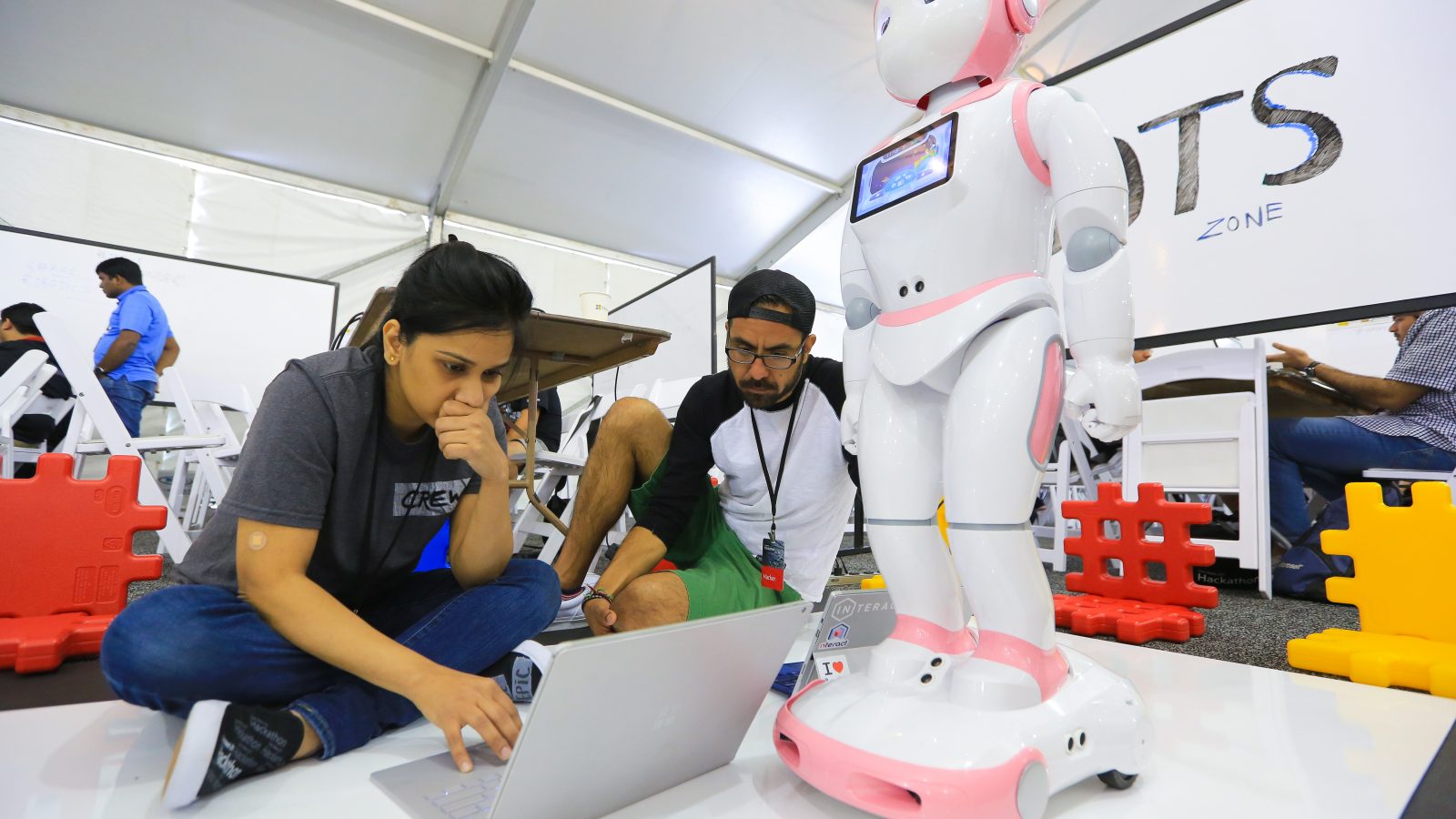
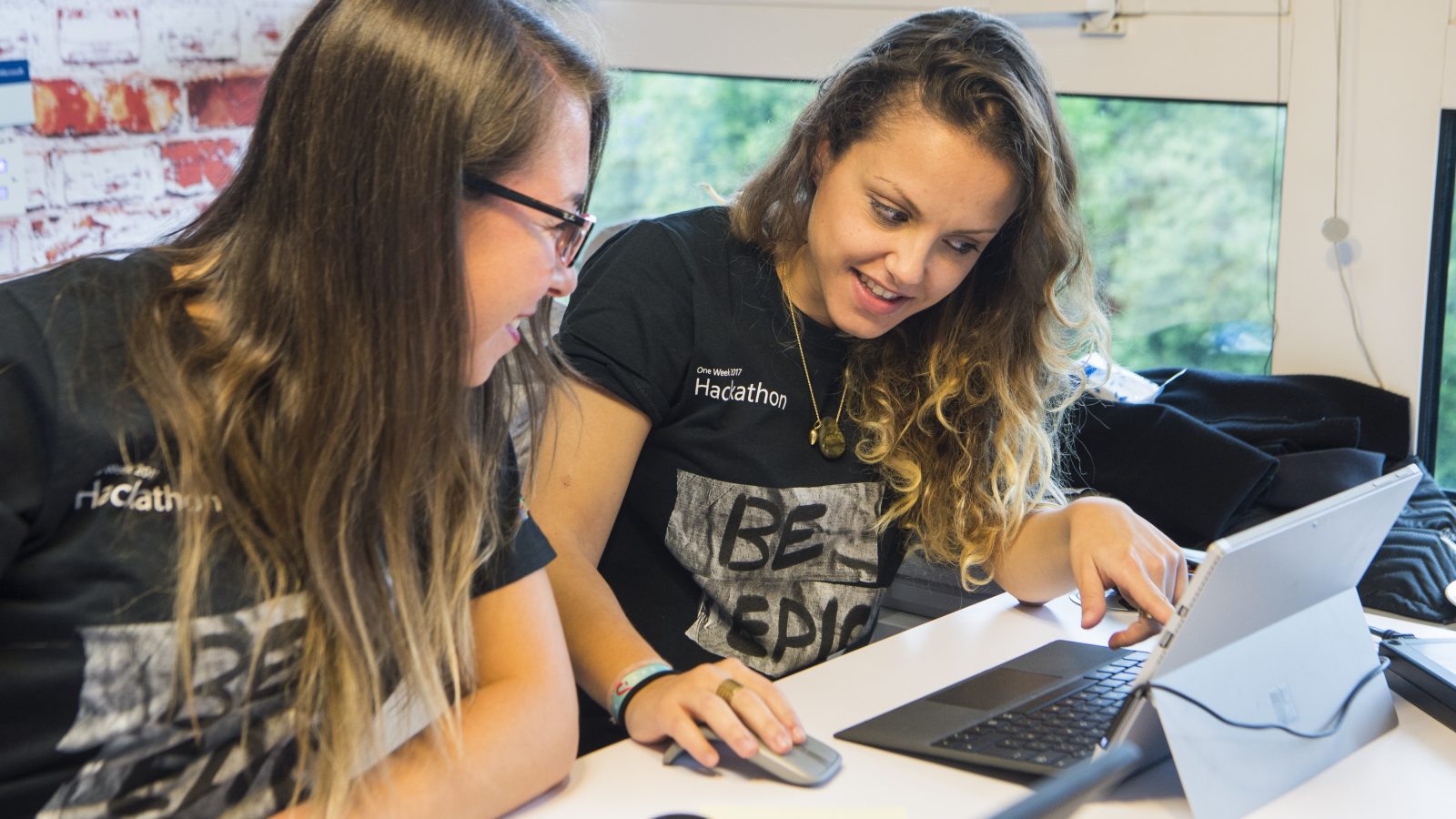
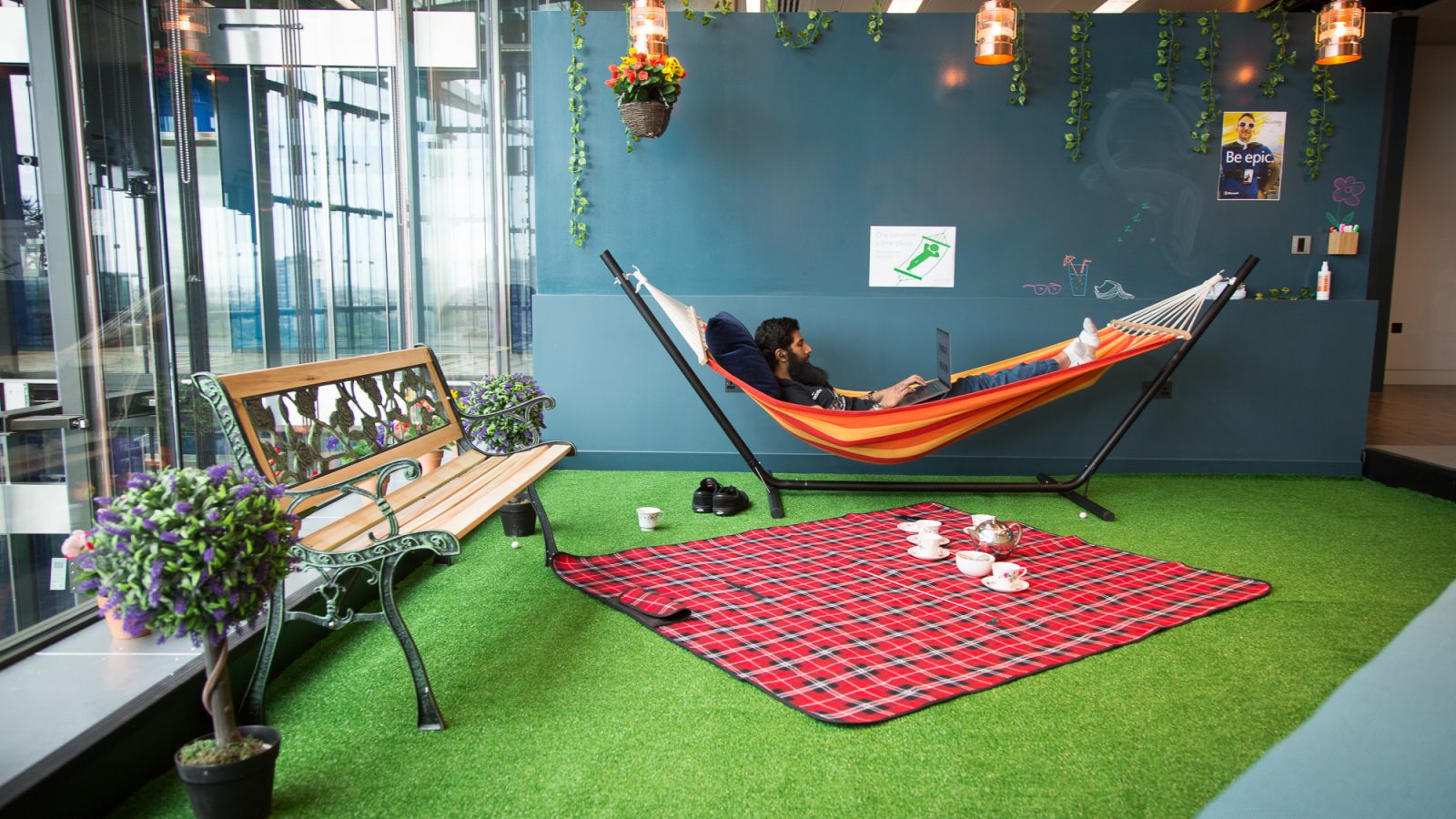
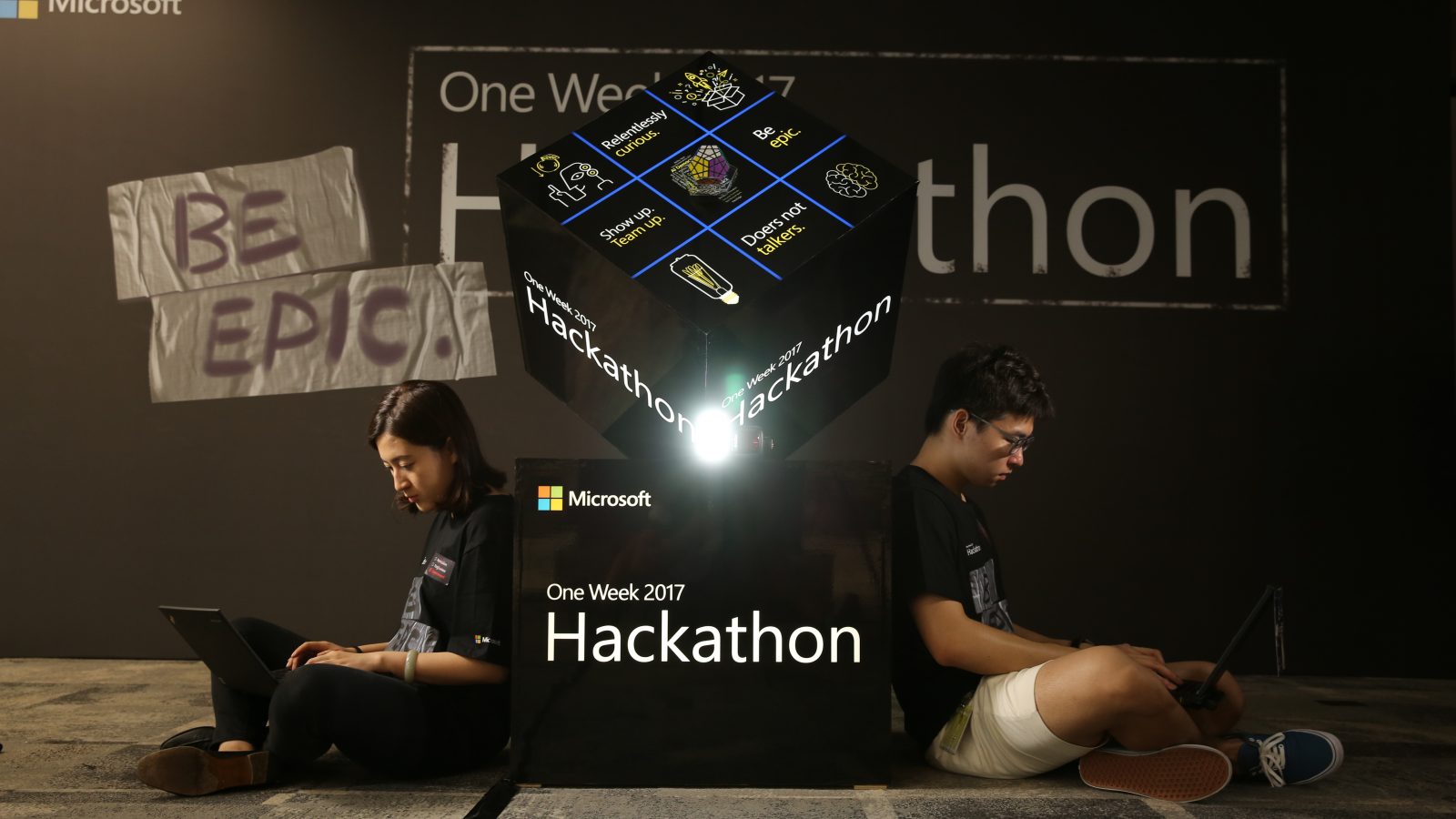
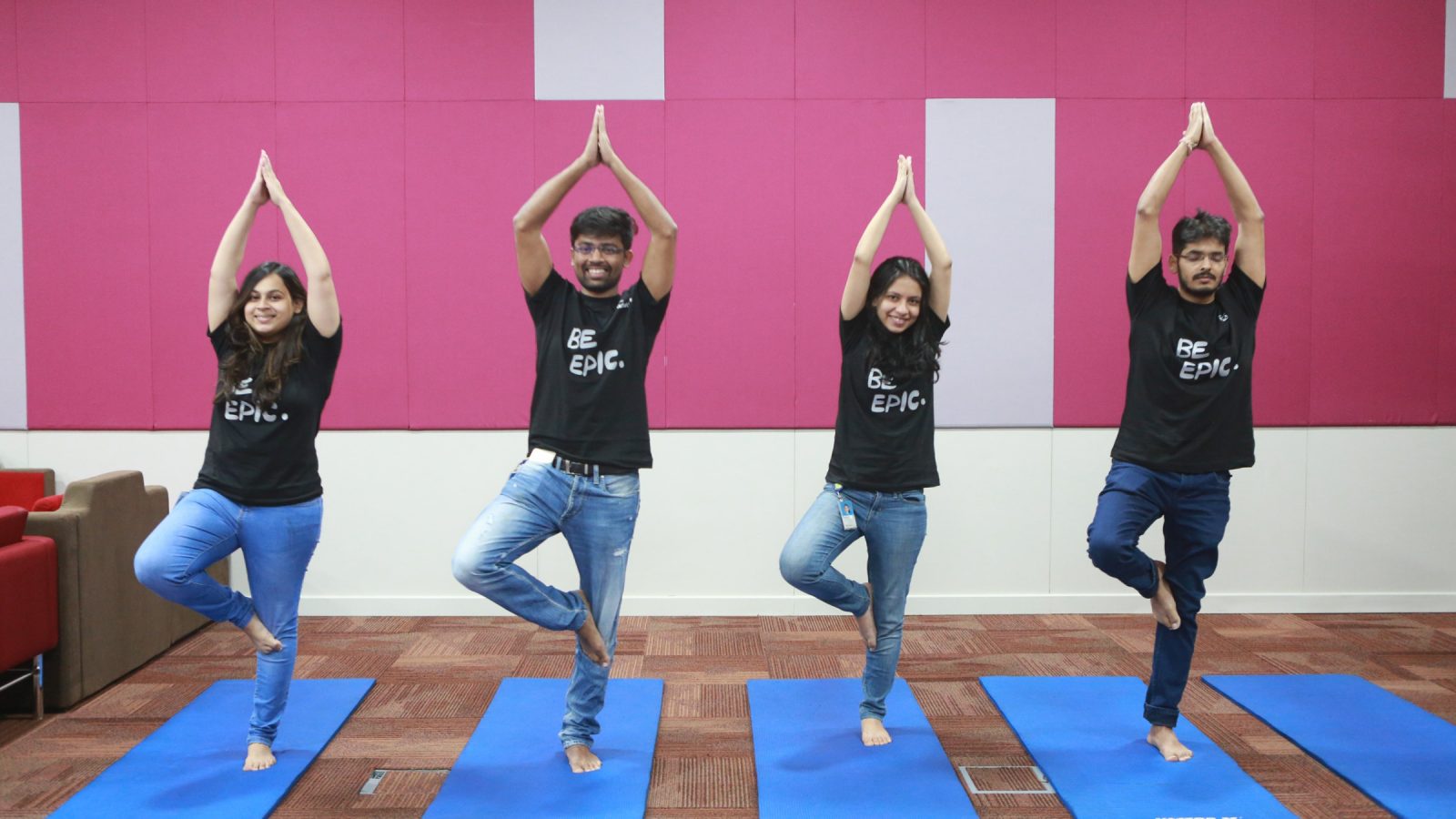
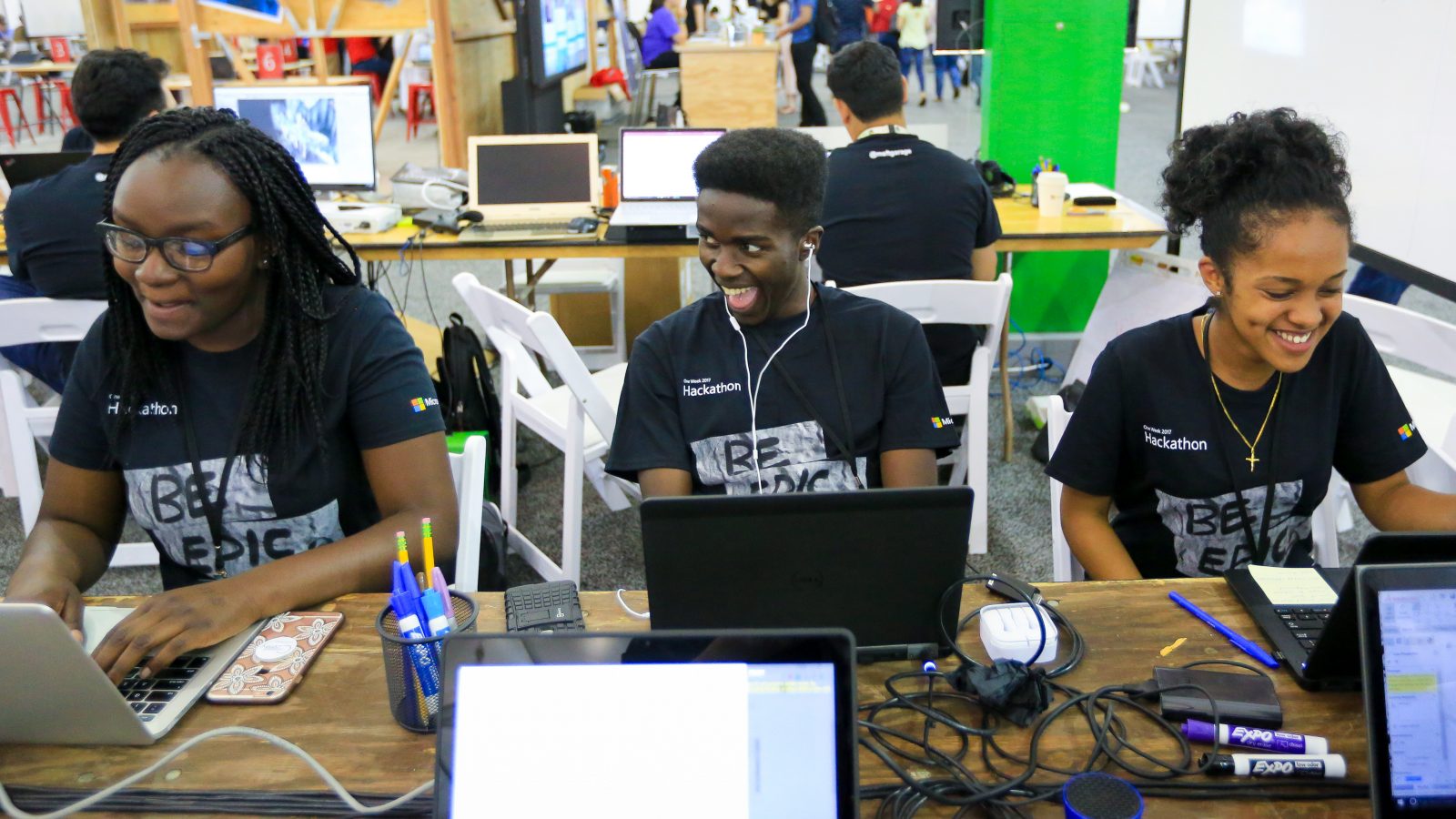
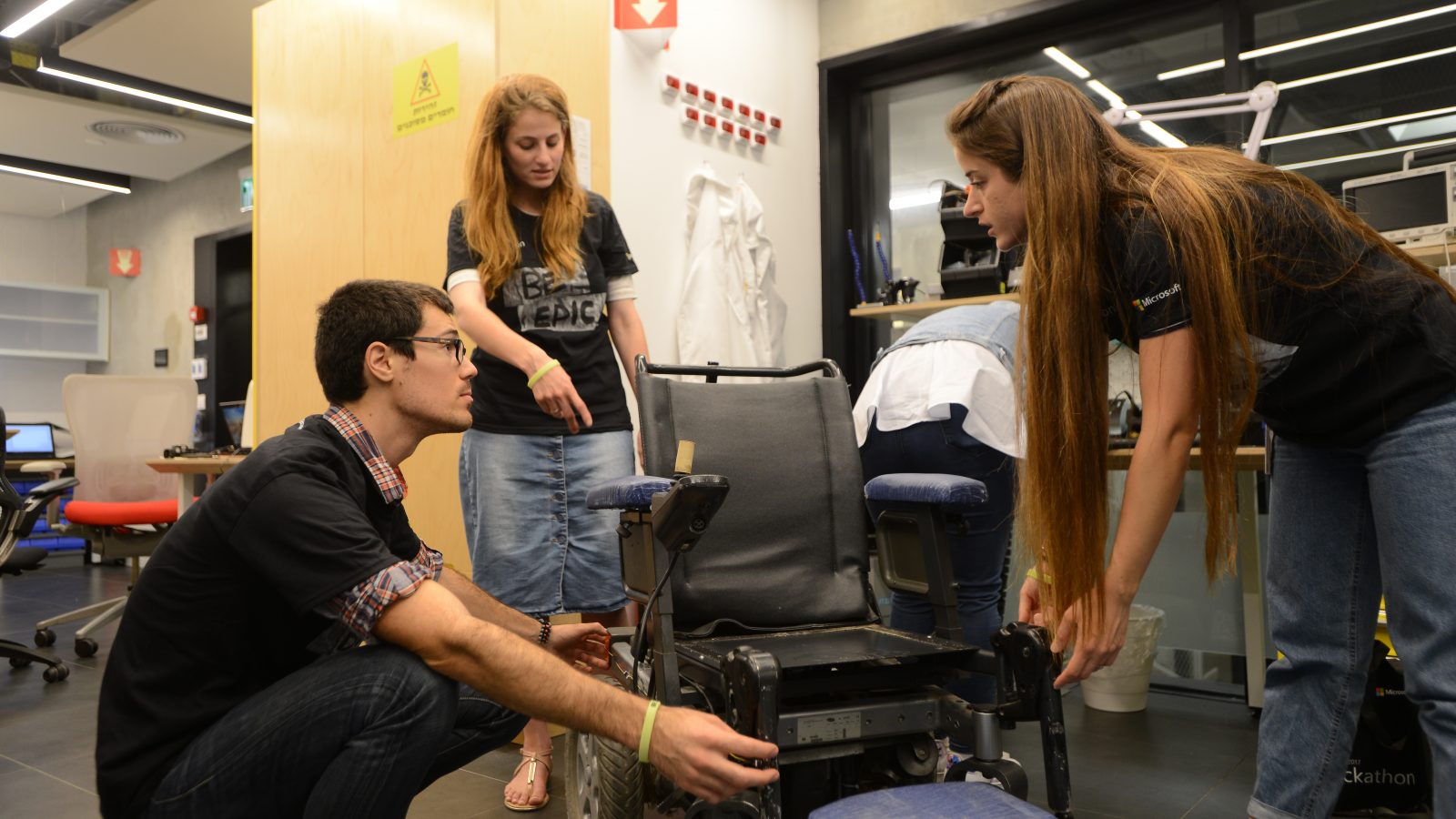
Efforts are paying off: Microsoft reports that 46 percent of last year’s participants were entirely new to hackathons and 90 percent said that being a part of Hackathon contributes to their sense that Microsoft is a great place to work.
The focus on creating something both innovative and impactful that matters to employees personally has drawn thousands of employees alone.
Some of the first projects to emerge from Hackathon that focused on helping others include Seeing AI, an app that narrates the world around users who have visual impairments; Learning Tools for OneNote, a OneNote add-on that assists students who have reading challenges like dyslexia; and Ability EyeGaze, an app that was developed initially for NFL star Steve Gleason and that gives people the chance to interface with computers by using their eye movements. The project has continued and is now a part of Windows 10, allowing users to use an on-screen mouse, keyboard, and text-to-speech experience by using only their eyes, and is the subject of a book encouraging engineers and developers to build the next wave of inclusive technology.
In 2016, Microsoft officially invited nonprofits to join Hackathon, to sit side by side with employees and communicate in real time as they create a solution together. Several projects emerged from the partnership, including an app to help the nonprofit Washington STEM connect students with mentors and a project led by Kal Viswanathan, who owns her own nonprofit, to help women get jobs in STEM fields. Another team created a tracking and predictive app to help Yuwa, a school for at-risk girls in rural India.
Growing a vision, iterating under time constraints, actively seeking other people’s points of view and skills, and embracing the inevitable departure from that original vision—sometimes for the better—are skills employees gain from Hackathon. Skills that are not only useful during the event but also benefit their own work and teams, infusing Microsoft culture with that hacking mindset.
“So far, every hack that I’ve completed at Microsoft has been part of a hack for good,” said Mendez Gandica. “I’m thankful for the growth mindset culture at Microsoft that allows me to pursue what I’m passionate about.”
Last year alone, Microsoft’s Hackathon drew 18,304 people, spanned 400 cities and 75 countries, and launched thousands of projects including health bots, broadband availability, and apps to help people with visual impairments get around more easily.
Every year, Hackathon takes on newer and greater challenges. Last year, artificial intelligence (AI) emerged as the hot hack theme. This year, the energy around AI continues, as well as a greater focus on inclusion, accessibility, and social change, said Susie Kandzor, group manager of Hackathon.
“Hacking for philanthropic causes is deeply ingrained in Microsoft DNA,” Kandzor said. “Now, more than ever.”
Kandzor also said that last year, a small pilot group of employees got to work directly with customers during Hackathon. This year, Microsoft is expanding the pilot to include more customers, so that the collaboration and innovation spurred by Hackathon can now spread beyond Microsoft, to other companies.
“We are seeing more and more customers who want to join us in Hackathon, not only to hack on a particular technology issue, but also because they see how hacking is driving culture change across the company. It’s awesome to be able to share what we are learning to help our customers catch the hacking spirit,” said Kandzor.
Mendez Gandica agrees. “I love the environment of Hackathon; everyone is there to get something done,” she said. “There are people there that want to learn and people there that want to teach, all in the name of contributing to something bigger than they are.”
Lead image: Beatris Mendez Gandica kicked off Hackathon 2017 with thousands of her fellow Microsoft employees. Photo by Scott Eklund, Red Box Pictures.
